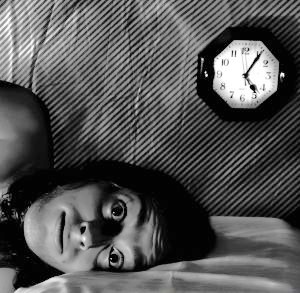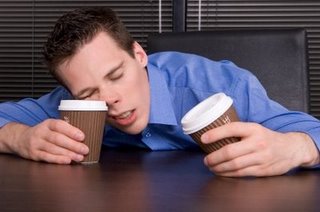National Sleep Awareness Week- Part 2

Today’s installment will discuss the National Sleep Foundation’s poll results on communication devices and sleep, and about how much sleep we need.
2011 Poll Results
According to the National Sleep Foundation, the use of communication devices before sleep is “pervasive”:
Americans report very active technology use in the hour before trying to sleep. Almost everyone surveyed, 95%, uses some type of electronics like a television, computer, video game or cell phone at least a few nights a week within the hour before bed. However, baby boomers (46-64 year olds), generation X’ers (30-45 year olds), generation Y’ers (19-29 year olds) and generation Z’ers (13-18 year olds) report very different technology preferences.
Watching television in the hour before bed was most common in baby boomers (67%) and generation X’ers (63%). Over 60% of responders said they used their computer or laptop before bed. About half of generation Z’ers and generation Y’ers say they surf the Internet every night or almost every night within the hour before sleep. Gen Y and Z’ers are also more likely to play video games, send text messages or make cell phone calls before bed than older individuals.
Why does this matter?
“Artificial light exposure between dusk and the time we go to bed at night suppresses release of the sleep-promoting hormone melatonin, enhances alertness and shifts circadian rhythms to a later hour—making it more difficult to fall asleep,” says Charles Czeisler, PhD, MD, Harvard Medical School and Brigham and Women’s Hospital. “This study reveals that light-emitting screens are in heavy use within the pivotal hour before sleep. Invasion of such alerting technologies into the bedroom may contribute to the high proportion of respondents who reported that they routinely get less sleep than they need.”
How Much Sleep Do We Need?
The amount of sleep each person needs depends on many factors, including age. Infants generally require about 16 hours a day, while teenagers need about 9 hours on average. For most adults, 7 to 8 hours a night appears to be the best amount of sleep, although some people may need as few as 5 hours or as many as 10 hours of sleep each day. Women in the first 3 months of pregnancy often need several more hours of sleep than usual. The amount of sleep a person needs also increases if he or she has been deprived of sleep in previous days. Getting too little sleep creates a “sleep debt,” which is much like being overdrawn at a bank. Eventually, your body will demand that the debt be repaid. We don’t seem to adapt to getting less sleep than we need; while we may get used to a sleep-depriving schedule, our judgment, reaction time, and other functions are still impaired.
People tend to sleep more lightly and for shorter time spans as they get older, although they generally need about the same amount of sleep as they needed in early adulthood. About half of all people over 65 have frequent sleeping problems, such as insomnia, and deep sleep stages in many elderly people often become very short or stop completely. This change may be a normal part of aging, or it may result from medical problems that are common in elderly people and from the medications and other treatments for those problems.
Experts say that if you feel drowsy during the day, even during boring activities, you haven’t had enough sleep. If you routinely fall asleep within 5 minutes of lying down, you probably have severe sleep deprivation, possibly even a sleep disorder. Microsleeps, or very brief episodes of sleep in an otherwise awake person, are another mark of sleep deprivation. In many cases, people are not aware that they are experiencing microsleeps. The widespread practice of “burning the candle at both ends” in western industrialized societies has created so much sleep deprivation that what is really abnormal sleepiness is now almost the norm.
Many studies make it clear that sleep deprivation is dangerous. Sleep-deprived people who are tested by using a driving simulator or by performing a hand-eye coordination task perform as badly as or worse than those who are intoxicated. Sleep deprivation also magnifies alcohol’s effects on the body, so a fatigued person who drinks will become much more impaired than someone who is well-rested. Driver fatigue is responsible for an estimated 100,000 motor vehicle accidents and 1500 deaths each year, according to the National Highway Traffic Safety Administration. Since drowsiness is the brain’s last step before falling asleep, driving while drowsy can – and often does – lead to disaster. Caffeine and other stimulants cannot overcome the effects of severe sleep deprivation. The National Sleep Foundation says that if you have trouble keeping your eyes focused, if you can’t stop yawning, or if you can’t remember driving the last few miles, you are probably too drowsy to drive safely.
[box type=”note”]For all articles on national sleep awareness week click here[/box]



























0 comments